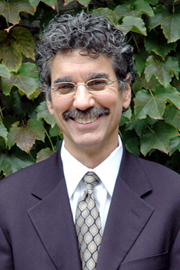| Sun | Mon | Tue | Wed | Thu | Fri | Sat |
|---|---|---|---|---|---|---|
| 1 | 2 | 3 | 4 | 5 | ||
| 6 | 7 | 8 | 9 | 10 | 11 | 12 |
| 13 | 14 | 15 | 16 | 17 | 18 | 19 |
| 20 | 21 | 22 | 23 | 24 | 25 | 26 |
| 27 | 28 | 29 | 30 | 31 |
CATEGORIES
RECENT ENTRIES
BLOG ROLL
Look at all the lonely people
 Social neuroscientist John Cacioppo is kind of a big deal in his field. Without his own work, Cacioppo couldn’t even be called a social neuroscientist. His 1992 American Psychologist article coined the name of the discipline, which examines how the brain and social behaviors affect each other.
Social neuroscientist John Cacioppo is kind of a big deal in his field. Without his own work, Cacioppo couldn’t even be called a social neuroscientist. His 1992 American Psychologist article coined the name of the discipline, which examines how the brain and social behaviors affect each other.
It was his groundbreaking research on loneliness that earned him this year’s Ryerson lecture. Loneliness, Cacioppo explained to a near-full Max Palevsky Cinema, is an evolutionary biological response to perceived social isolation. It has nothing to do with whether a person is alone or surrounded by people—the relationship quality is more important than quantity. (In fact, he said, those Facebookers aiming to collect the most virtual buddies may in reality be quite lonely.) Like hunger, thirst, or pain, loneliness triggers an impulse, telling a person that something is wrong. Loneliness “protects you as an individual body,” and engaging in social behaviors, said Cacioppo, “helps an organism survive, reproduce, and carry offspring.”
In the 30-minute lecture (plus a Q&A), Cacioppo detailed his findings on how loneliness affects emotions, biology, and health. His longitudinal studies have shown that, overall, chronically lonely people are at risk for more health problems, such as cardiovascular disease and stroke, than those who feel less socially isolated. "Loneliness is actually a very virtuous feature," Cacioppo concluded. "Chronic loneliness is not. But if you didn’t have physical pain as a process in your body," he said, "you wouldn’t survive because you wouldn’t know if you were harming your own body. Loneliness contributes to our own humanity because it motivates us to connect and do things for others."
Three findings in particular surprised Cacioppo and his colleagues:
- Collectivist cultures, like Italians, are lonelier than individualist ones: “When are people in America at their very loneliest? It’s not during the busiest of days—it’s during the holidays when the social norm is that everyone’s with friends and family.”
- “Loneliness is just as characteristic of popular kids as it is of unpopular kids.”
- "How lonely you feel on a particular evening predicts that night’s sleep efficiency."
Ruthie Kott, AM'07
RECOMMENDED LINKS
- Slideshow: "Video: Cacioppo | Why Do We Feel Lonely?"
- Slideshow: "Video: Cacioppo | Loneliness and the Body"
- Twitter: J_Cacioppo
RELATED READING
- "Cacioppo to deliver Ryerson" (Chicago Chronicle, Apr. 30, 2005)
- "Linking the Mind and Body" (University of Chicago Magazine, Feb/00)
May 22, 2009
